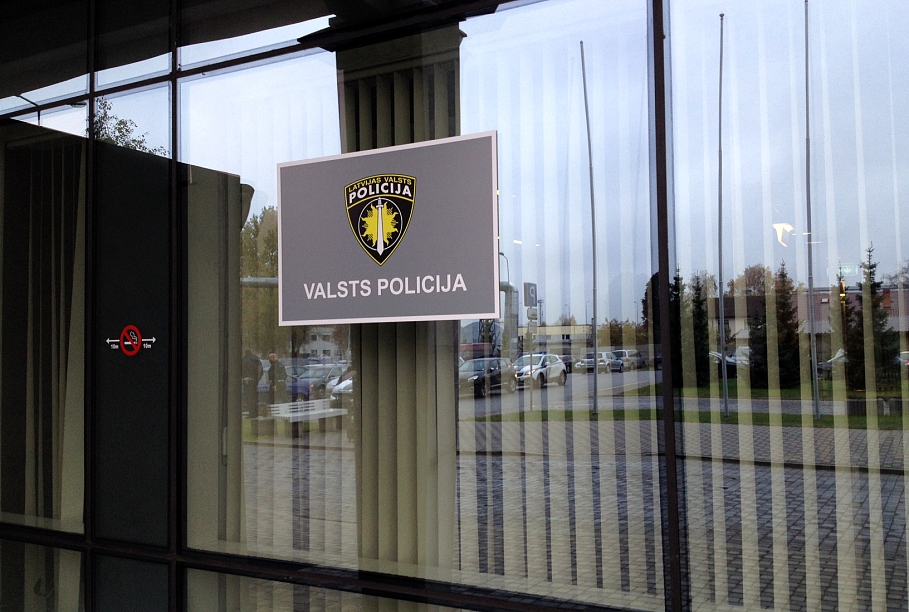During the now-finished investigation, police tapped her phone calls and the locations of the people she contacted, reported LTV's Panorāma.
The investigation concerned an experiment carried out by the show Aizliegtais paņēmiens last year. Latvia's Chapter of Orders, which confers civil honors to distinguished Latvians, has never revealed the exact criteria used for bestowing them.
The journalist, pretending to be a Chapter representative, contacted municipalities and encouraged them to put forward their own candidates to receive honors, with the intention of following what happened after the submissions were made.
However the journalist was eventually noticed by the authorities and received a call saying: "How are you representing the Chapter - with what authority? I am interested. It's Aleksandrs Bimbiruls, head of the President's Chancery, calling."
Upon being discovered, the journalist told Bimbiruls to call the show's editor Guntis Bojārs for an explanation. However, he was not contacted.
Instead, in October 2015 the journalist was informed that a criminal investigation had been started against her for carrying out illegal and harmful activities using personal data (all applications to the Chapter of Orders require the submission of an individual's personal code, a unique number assigned to all Latvian residents).
The investigation was started by the Daugavpils State Police department but later taken over by the main criminal investigative body of the State Police.
During the investigation, the whole of the Aizliegtais paņēmiens team was questioned, as were the people that the journalist had spoken to. The police also asked for and received official permission to record incoming and outgoing phoe calls and to record the location of the people involved.
The investigation was closed this summer as no law violations were established.
"On the one hand, it's good that the police can investigate cases completely, using full resources," said Aizliegtais paņēmiens editor and presenter Guntis Bojārs.
However, he questioned whether wire taps and a major investigation over many months were an appropriate use of resources.
"They could have summoned journalists and me as the head of the show to find out what's the matter and to see that there was no criminal intent behind this," he said.
Concerning call monitoring, the police said that the means of investigation are chosen by the lead investigator.
"Communications control takes place according to Criminal Proceedings law, where the judge of the investigation assesses if the breach of basic rights and freedoms is proportionate. [..] During the investigation, it is necessary to find out the subjective views of the person (including the motives for committing the possible crime) over what they did. This is achieved, including by use of special investigative actions," the police told the show.
Attorney Lauris Liepa said that the police in monitoring all phone calls had not considered the status and work methods that journalists are entitled to use in a democratic society.
"As a result the journalist in question and all those working in this area can consider it as a threat to their actions. But what's more difficult and unpleasant is that these actions can dampen the enthusiasm of the information sources to trust journalists and that they'll be kept secret," said Liepa.
A letter to the show, signed by Prosecutor General Ēriks Kalnmeiers, says that the closure of the investigation will be put under review, meaning that it might not be over quite yet.
The board of the Latvian Journalists' Association (LŽA) - the country's main journalist body - on November 15 condemned the move as "inappropriate for a democratic society."
"In turning against S. Miķelsone, her professional activity was threatened, and one of the most substantial, legally established media principles - the confidentiality and protection of sources - was violated," said the association.
"The LŽA board considers all the procedural activities of the police, monitored by the prosecutor and sanctioned by the court to be inappropriate for the situation and confirming the fact that Latvian authorities lack understanding of the role of journalists in a democratic society," said the association.
The association said that further disclosure of publicly important information could be threatened if journalists and their sources in Latvia have to face repressive reactions from the authorities.
The association called for the authorities to explain publicly why the journalist was investigated to such a degree.





























